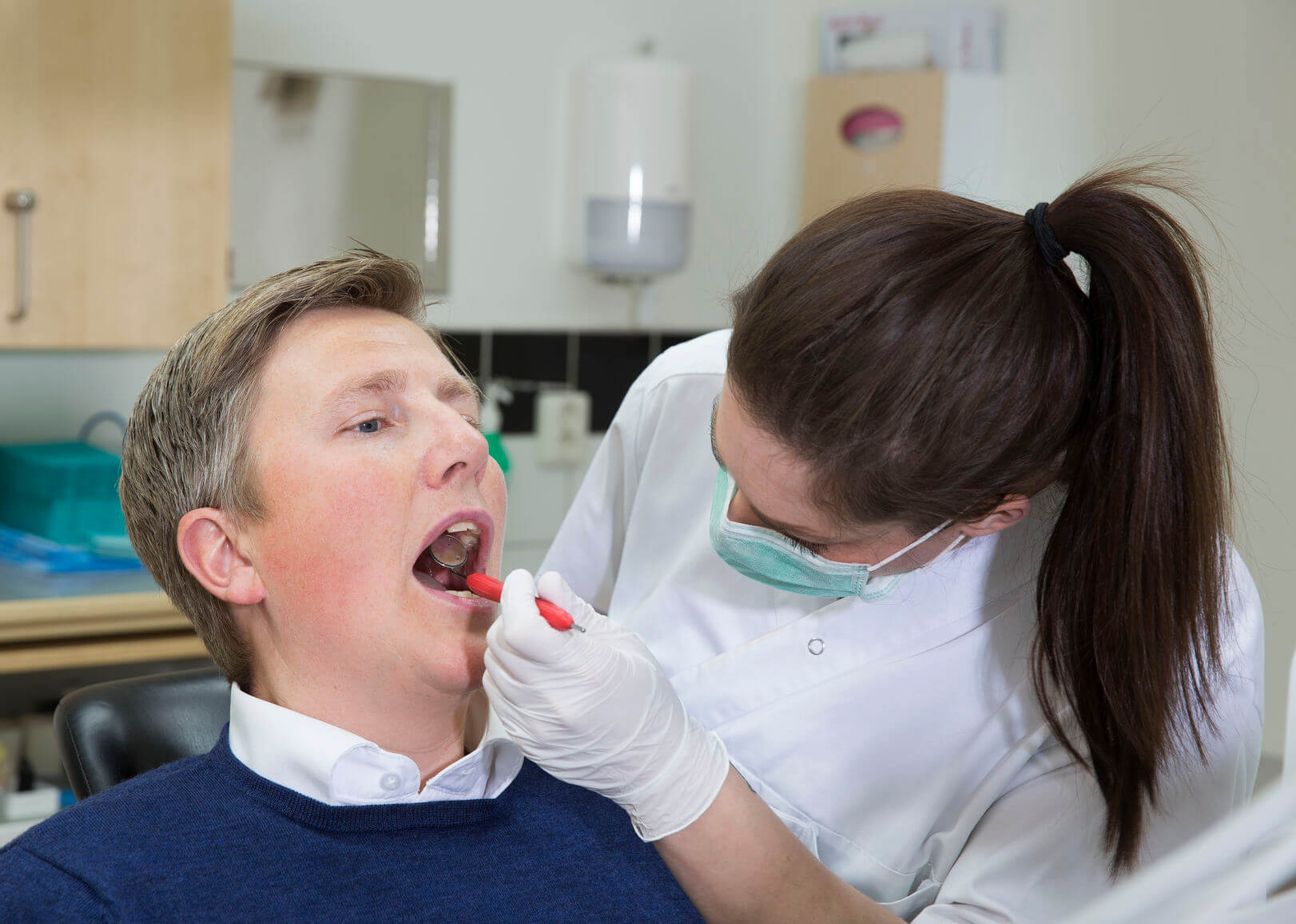
What Causes Swollen Gums?
If you have swollen gums, there is a good chance that your gums are infected as a result of periodontal, or gum, disease. However, there are other factors that could cause your gums to swell. Whatever is causing your gum problems, consult with your oral care specialist to have your gums examined and determine the best treatment for you.
Gum Disease
The most common cause of swollen gums is gum disease, an infection that begins below the gum line. When bacteria from plaque gets into your gums and causes an infection, your body responds by attacking the bacteria, causing swollen gums that are painful and likely to bleed easily.
There are two types of gum disease: gingivitis and periodontitis. Gum disease typically starts out as gingivitis, which is characterized as an infection that causes gums to become inflamed – red, tender, and swollen. At this stage, gum disease can be treated with proper oral hygiene. If left untreated, gingivitis can lead to periodontitis, an advanced form of gum disease that causes deterioration of the tissues, ligaments, and bones that support teeth and can lead to tooth loss.
The following are the most common signs of gum disease:
- Inflamed gums
- Gums that bleed easily when brushed or flossed
- Gums that are pulling away from teeth
- Persistent bad breath or a bad taste in your mouth
- Changes in the way your teeth align
- Loose teeth
Improper Brushing
If you are using too much pressure when brushing your teeth, you could damage your gums. Your gums are made of sensitive tissue, so vigorous brushing or brushing with a hard-bristled brush can irritate gums and cause swelling.
The American Dental Association recommends brushing with a soft-bristled, small-headed brush and using gentle circular motions to remove plaque from teeth and gums. Gently brush for two minutes to effectively remove plaque and protect your gums from damage caused by the toothbrush.
Improper Flossing
Just like vigorous brushing can damage gums so can improper flossing. Daily flossing is essential to removing plaque and food particles from places where a toothbrush cannot reach. However, do not force floss between teeth or jam it into your gums. Instead, the ADA recommends that you carefully slide floss between teeth and then make a C-shape, curving the floss around the tooth to slide residue or food particles off the teeth. It is also recommended that you use waxed floss for added comfort.
Stress
Stress can manifest in the mouth in the form of canker sores, or mouth ulcers. Canker sores can develop anywhere in the mouth, including the gums, sides of the mouth, and tongue. They have a whitish center and red around the edges and can cause swelling in the areas where they appear.
Stress can also weaken your body’s immune system, making infections, such as gum disease, more likely.
Changes in Hormones
It is common for women to experience swollen gums during puberty, menstruation, pregnancy, menopause, or if they are taking oral contraceptives. An increase in hormones heightens blood flow to the gums, causing them to become red, swollen, and sensitive.
Other factors that could cause your gums to swell:
- Using tobacco
- Chemotherapy
- Infection by a virus or fungus
- Poorly fitting dentures
- Sensitivity to toothpaste or mouthwash
- Side effects from certain drugs
- Malnutrition
- Scurvy, caused by a Vitamin C deficiency
Prevent Swollen Gums
Since plaque is the main culprit for causing sore, infected gums, follow the ADA’s recommendations for good oral hygiene to keep plaque off your teeth and gums.
- Brush for two minutes twice a day, using gentle, circular motions with a soft-bristled brush.
- Floss daily, using waxed floss and taking care near the gum line
- Eat a healthy diet, including plenty of vitamin C and calcium and limit sugary foods
- Avoid tobacco
- Drink lots of water and eat crunchy raw vegetables, both are natural ways to remove plaque from teeth
Schedule a visit with your dentist if you have swollen gums to determine what is causing your gum tissue to be irritated. Your dentist will be able to examine your teeth and gums, consult with you, and recommend the best treatment.